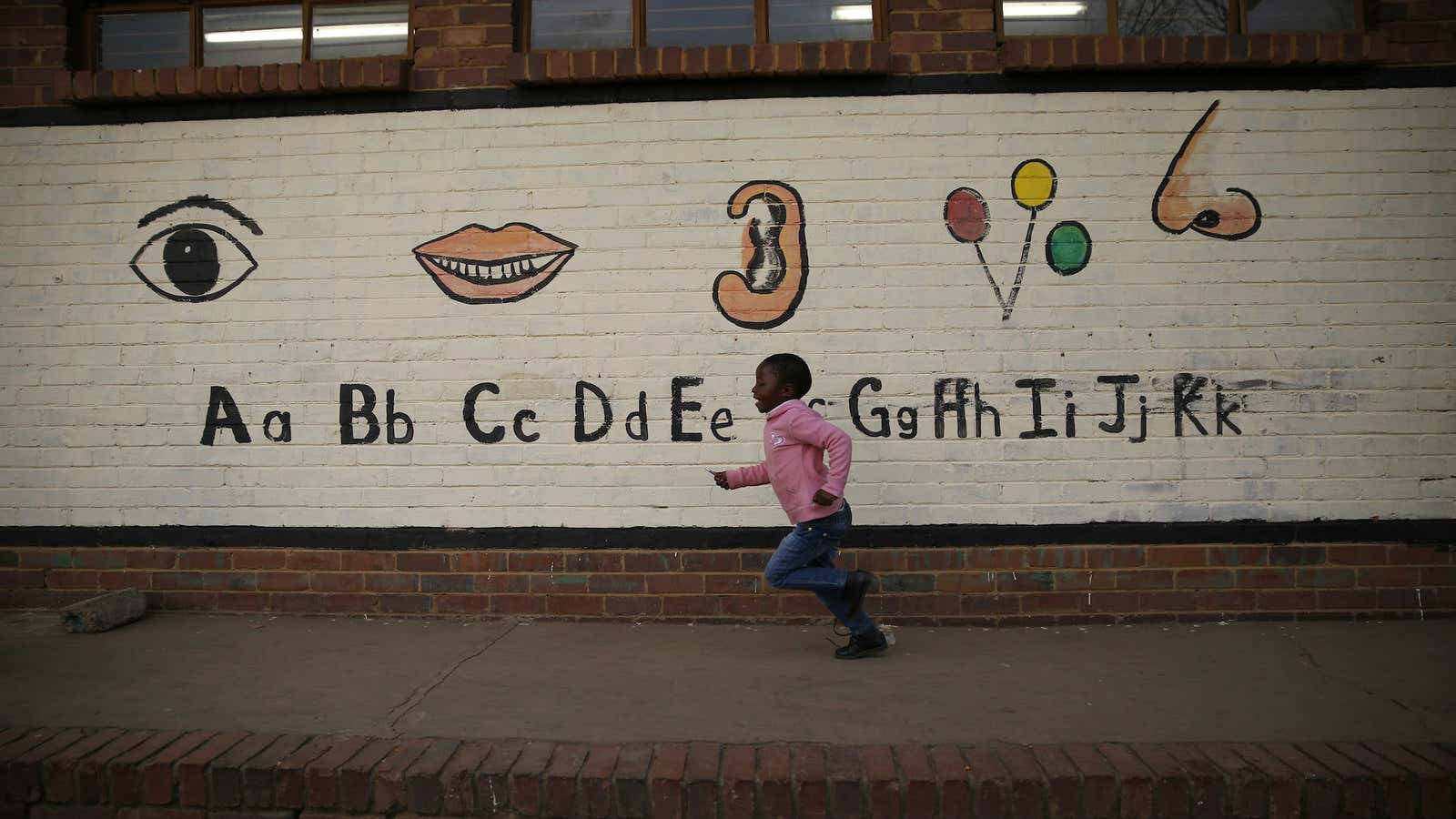South African public schools will begin offering Mandarin as an optional second language next year, according to an announcement from the country’s education ministry. The seemingly innocuous addition—more than a dozen other languages from German to Urdu are also being added—has become a rallying point for critics of the government’s close ties with China as well as failure to protect local languages.
“We’ll oppose the teaching of Mandarin in our schools with everything that we have,” the country’s largest teachers union has said of the policy. “We see it as the worst form of imperialism that is going to happen in Africa,” the group’s general secretary, Mugwena Maluleke said. Maluleke said the union would be sending text messages to all its teachers to reject the new policy.
Language is particularly political in South Africa. South Africa has 11 official languages, which include several native south African languages, but English is the dominant language in business and politics. Some efforts have been made to introduce indigenous African languages in the country, but many are not available in schools. The government agency responsible for promoting them, the Pan South African Language Board, is consistently underfunded. Across the continent, only 200 African languages (pdf, p. 21) are used in schools.
Students in South Africa are required to study two languages: a home language—often English or an indigenous language—and a second language. According to the announcement, Mandarin will be gradually introduced in some schools next year and offered to all students between the grades of four and 12 by 2018. Kenya is also considering similar moves, with Mandarin to be offered as a second language possibly in 2017.
Critics of South Africa’s ruling party, which has promoted closer ties between the two countries for years, accuse the government of giving Mandarin priority. Maluleke questioned why the government issued an announcement about introducing Chinese but did not mention the other languages added. “The department must tell us what did they receive from China that they don’t want to be open about it,” he said.
A spokesperson for South Africa’s education department said that the Chinese government would be providing support for teacher training. China has been encouraging the teaching of Mandarin to African students via scholarships to study in China and dozens of government-funded language and culture schools, Confucius Institutes, set up across the continent.
